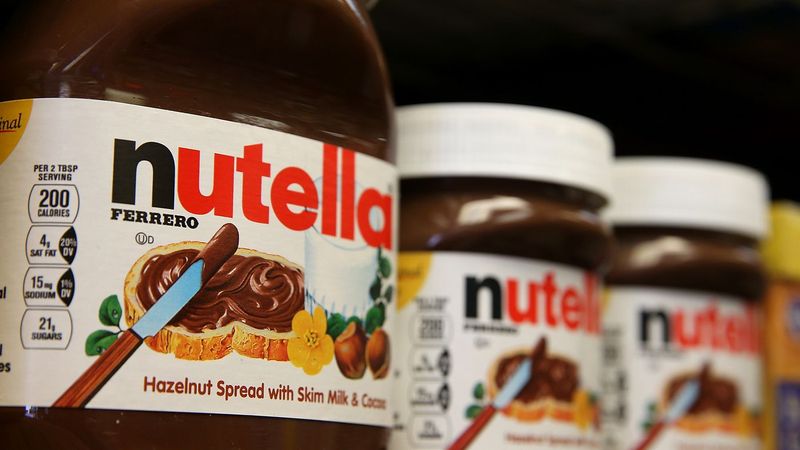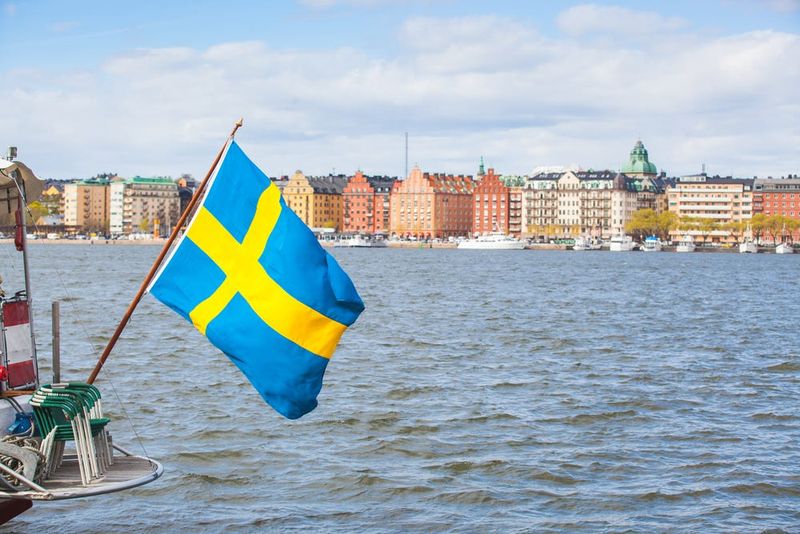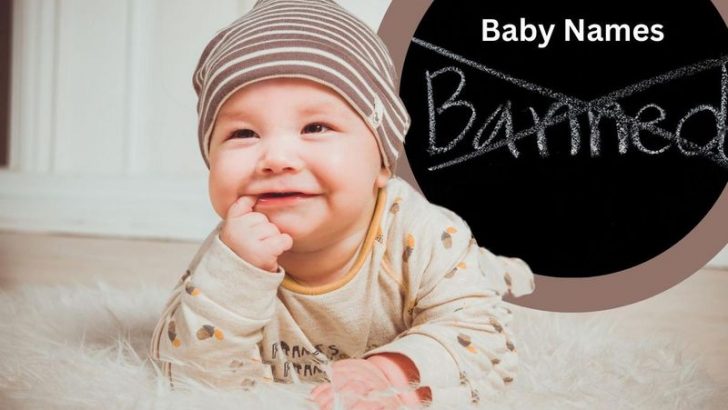In a world where names carry cultural significance and personal identity, some parents push the boundaries with unconventional choices. However, many countries have specific regulations to prevent parents from giving their children names that could lead to ridicule, confusion, or cultural insensitivity. The laws and guidelines governing names vary widely across the globe, reflecting different societal values, historical contexts, and cultural norms. From names associated with infamous figures to those with peculiar spellings, here’s a look at 15 controversial baby names that have been banned in various countries. These examples reveal both the creativity and controversy that can accompany the seemingly simple act of naming a child.
1. Facebook

In 2014, parents in Sonora, Mexico, faced strict naming laws that prohibited the use of names deemed derogatory or nonsensical. “Facebook” was among those banned, reflecting the influence of social media on modern life. Imagine the confusion at roll call or the challenges in a professional setting with a name like “Facebook.” Instead of a unique identity, the name could burden a child with unintended associations. Such legislative actions highlight societal efforts to preserve the dignity and well-being of individuals, ensuring names bear cultural relevance and respect.
2. Lucifer

In Germany, the name “Lucifer” was rejected by authorities, citing its offensive nature. Known as a biblical antagonist, Lucifer is often synonymous with evil, and naming a child thus could provoke unnecessary bias and stigma. Imagine a child growing up under the shadow of such a potent name, potentially facing prejudice in various social contexts. Germany’s rejection reflects a broader intention to align naming conventions with societal values, ensuring they promote positive cultural and personal identity. By curbing such names, authorities aim to shield children from life’s unnecessary hardships.
3. Nutella

In 2015, a French court ruled against naming a child “Nutella,” fearing it could lead to teasing. While “Nutella” may evoke images of delicious spreads, it carries the risk of objectifying a person, reducing identity to a mere brand. Picture a playground scenario where children chant the name of a chocolate spread, rather than an individual. France’s decision underscores the importance of weighing creative expression against potential social repercussions, aiming to protect children from enduring ridicule and fostering a sense of individuality, free from commercial connotations.
4. Ikea

Sweden’s naming laws prevent parents from choosing brand names like “Ikea” for their children. This restriction aims to avoid commercial entanglements and maintain the integrity of personal identity. Imagine a child named after a famous furniture brand, navigating life with a moniker more fitting for a store than a human. The decision reflects a cultural awareness of the power of names as primary identifiers and cultural symbols. Sweden’s approach ensures that names remain free of corporate influence, preserving the personal significance for individuals and their families.
5. Osama Bin Laden

In Germany, naming a child “Osama Bin Laden” is prohibited due to its association with terrorism. Such a name evokes historical trauma and global fear, burdening a child with a legacy of violence and infamy. Consider the impact of introducing oneself with a name synonymous with terror; it may invite prejudice and alienation. Germany’s stance illustrates the sensitive nature of naming conventions, reinforcing the importance of social harmony and respect. By disallowing such names, authorities strive to protect children from inheriting a fraught and controversial legacy.
6. An*l

New Zealand’s naming laws clearly prohibit names that could cause embarrassment, such as “An*l.” The potential for ridicule with such a name is significant, conjuring images uncomfortable for both the bearer and their peers. Imagine the teasing in schoolyards or the raised eyebrows in formal settings. By implementing these regulations, New Zealand aims to protect individuals from unnecessary humiliation and ensure names serve to uplift rather than demean. Such thoughtful legislation promotes a culture of respect and understanding, reinforcing the protective role of naming laws.
7. Princess

In New Zealand, the name “Princess” is banned due to its official title status, which can lead to confusion. Though “Princess” might seem an enchanting choice, it carries the risk of unrealistic expectations and societal misunderstandings. Picture a classroom where calling “Princess” prompts more questions than clarity. The ban reflects a cultural effort to maintain the clarity of social roles and identities. By regulating such names, New Zealand strives to ensure that titles remain free from personal use, promoting a society where names and titles align with their true meanings.
8. Harriet

The Icelandic government rejected the name “Harriet” because it includes letters not present in the Icelandic alphabet, violating naming conventions. This regulation emphasizes the importance of linguistic harmony and cultural respect. Picture a community striving to preserve its linguistic heritage, where every name aligns with phonetic norms. By enforcing such guidelines, Iceland reinforces the value of cultural coherence, ensuring names resonate with national identity. Such policies reflect a broader commitment to preserving language as a living reflection of cultural history and unity.
9. Venerdi

In Italy, a court ordered parents to rename their son “Venerdi” (Friday), associating it with subservience in literature. The name, reminiscent of Robinson Crusoe’s loyal servant, carries connotations of inferiority. Envision a child burdened with a name that implies servitude, potentially affecting their self-worth and societal interactions. Italy’s decision underscores the cultural sensitivity around names and their historical roots. By regulating names, authorities aim to uphold individual dignity and cultural awareness, ensuring names reflect values that uplift rather than diminish.
10. Akuma

“Akuma,” meaning “devil” in Japanese, was rejected to protect children from potential mockery. Imagine the stigma attached to a name synonymous with malevolence, potentially isolating a child in social circles. Japan’s rejection highlights the cultural importance of names as reflections of character and identity. By preventing such associations, authorities strive to ensure names promote a sense of belonging and acceptance. The decision reflects a broader societal commitment to fostering positive environments for children, ensuring their names contribute to their harmonious development.
11. Monkey

In Denmark, names like “Monkey” are banned to prevent bullying and social challenges. The whimsical nature of the name could lead to ridicule, overshadowing a child’s individuality. Visualize a playground where “Monkey” becomes a taunt rather than a delightful nickname. Denmark’s regulations emphasize the protective role of naming laws, ensuring names contribute positively to a person’s social experience. By maintaining these standards, authorities aim to foster environments where children can thrive without the burden of inappropriate or misleading names, reinforcing societal respect and inclusion.
12. Maya

In 2014, Saudi Arabia banned “Maya,” considering it inappropriate for cultural and religious reasons. The decision reflects the nation’s commitment to preserving cultural integrity and aligning names with societal values. Imagine the challenge of growing up with a name that faces cultural scrutiny, potentially alienating the individual from their community. Saudi Arabia’s stance underscores the delicate balance between personal identity and cultural heritage, ensuring names resonate with national and religious principles. Such measures aim to uphold the cultural fabric, fostering names that reflect shared values and traditions.
13. Linda

Saudi Arabia also banned “Linda,” viewing it as foreign and not in line with social traditions. The name, popular in Western cultures, may clash with local norms and expectations. Picture the challenge of integrating a foreign name into a community with strong cultural ties. By regulating such names, Saudi Arabia reinforces the importance of cultural coherence and mutual respect. These naming laws aim to preserve linguistic and cultural harmony, ensuring that names reflect the values and traditions of the community, fostering a sense of belonging and unity.
14. Cyanide

A Welsh mother faced legal obstacles when attempting to name her daughter “Cyanide,” with authorities intervening to prevent potential harm. The name, synonymous with a deadly poison, could lead to stigma and fear. Imagine the weight of a name linked to danger, overshadowing personal identity. Wales’ intervention reflects a protective approach to naming, ensuring individuals are not burdened with names that carry harmful connotations. By imposing such restrictions, authorities strive to shield children from negative associations, fostering names that promote well-being and social acceptance.
15. Brfxxccxxmnpcccclllmmnprxvclmnckssqlbb11116

In Sweden, authorities rejected “Brfxxccxxmnpcccclllmmnprxvclmnckssqlbb11116,” a name parents claimed was pronounced “Albin.” The unconventional nature of the name challenged linguistic norms and social practicality. Picture a lifetime of correcting bewildered teachers and friends on the pronunciation. Sweden’s decision emphasizes clarity and coherence in naming, ensuring that names function effectively as identifiers. By rejecting such extreme creativity, authorities aim to balance personal expression with societal norms, fostering a naming culture that respects both individual desires and communal understanding.

Well, hello there!
My name is Jennifer. Besides being an orthodontist, I am a mother to 3 playful boys. In this motherhood journey, I can say I will never know everything. That’s why I always strive to read a lot, and that’s why I started writing about all the smithereens I came across so that you can have everything in one place! Enjoy and stay positive; you’ve got this!

